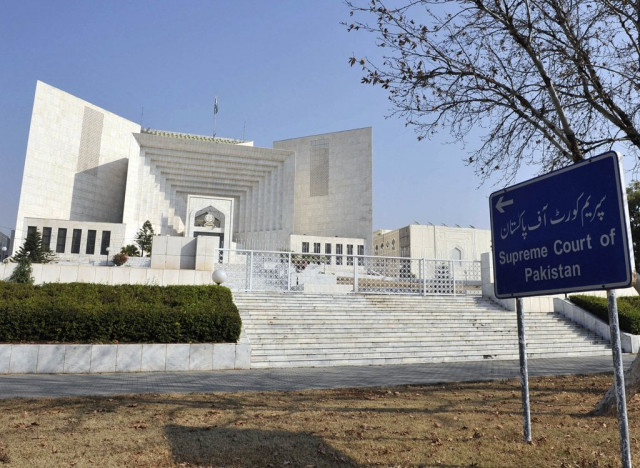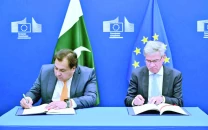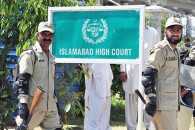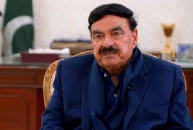Supreme Court set to plug election plea loophole
Special bench frames number of questions on the matter for adjudication

The Supreme Court is set to reconsider the controversy over the maintainability of election petitions.
A three-judge special bench, led by Justice Umar Ata Bandial and comprising Justice Ijaz ul Ahsan and Justice Mazhar Alam Miankhel, while hearing number of petitions related to the last general elections has framed a number of questions for adjudication.
The court questions as to whether an order of summary rejection of election petition under Section 145 (2) of Election Act 2017 for non-verification of its contents may be passed at any stage of proceedings or is restricted to early stage of case until a written statement by respondent/ returned candidate wherein such objection is raised of any event before the recording of evidence of the parties.
It also questions that in a case where office of election tribunal has failed to object the deficiency of or defect in the verification of the contents of the election petition under Rule 140 of the Election Rules 2017 whether respondent may raise such objection at any stage in the proceedings.
The apex court has posed the question as to whether the limitation of 45 days for filing an original or amended petition prescribed in section 142 of the Act may be extended with effect from the date of communication by the tribunal of its objection to the deficiency of or defect in the verification of the contents of the election petition under rule 140 of the rules.
The order further read that whether the verification of an election must necessarily be recorded at the foot of a petition or a separate affidavit verifying its contents satisfied the requirements of section 144 (4) of the Act.
The court asked all parties to submit their written formulations on these questions.
It is learnt that federal and provincial governments are supporting the previous jurisprudence wherein the apex court maintained strict criteria about the verification of an election petition. Under that, most election petitions are being dismissed on technical grounds.
Additional Advocate General Punjab Chaudhry Faisal Hussain believes that jurisprudence has already been settled by the apex court and it has been followed by all and sundry in the last two decades. "I don't see any need to being any change therein,” he said.
“We would like to stick with the constitutional mandate in letter as well as in spirit", he added, referring to Article 225 of the constitution.
However, senior lawyers say that the court jurisdiction on election matters is inconsistent, confusing and conflicting.
Since 2009, the apex court initiated a process to disqualify lawmakers by exercising the jurisdiction of quo warranto.
The SC evolved a jurisdiction wherein while exercising suo motu power, it could disqualify a lawmaker but on the other hand, an election petition against same MNA or MPA might be rejected on technical grounds for not fulfilling the verification process.
Even in the Sheikh Rashid disqualification case, SC judge Justice Qazi Faez Isa had raised several questions over the quo warranto jurisdiction wherein the eligibility of lawmakers was being examined by the superior courts under Articles 184 (3) and 199 of constitution.
Justice Isa questioned as to whether the superior courts could intervene election matters in view of Article 225 of constitution wherein it is held that they would only be challenged in election tribunals.
Legal experts have urged the SC to form a larger bench to settle all conflicts related to election matters. Even Justice Isa in the Sheikh Rashid case had raised seven questions in this regard. However, former CJP Mian Saqib Nisar had not formed larger bench on that matter.
Justice Isa also said the scope of Article 225, which specifically dealt with election disputes, also needed to be considered and whether on the principle of the ‘specific excluding the general’, this article excluded resorting to Article 184(3) of the constitution in respect of individual election disputes.
He also questioned if an election dispute could be categorised as a matter of “public importance” and which particular fundamental right stands infringed that needed “enforcement”.



















COMMENTS
Comments are moderated and generally will be posted if they are on-topic and not abusive.
For more information, please see our Comments FAQ